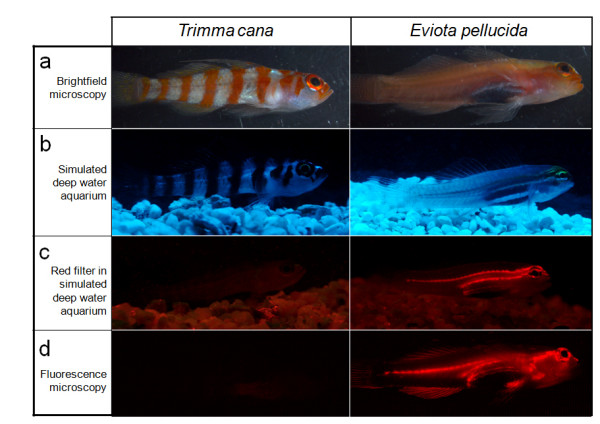Figure 3.

How to distinguish a red fish from a red fluorescent fish?. Comparison between a non-fluorescent goby, Trimma cana (left), and a similar sized, red fluorescent goby, Eviota pellucida (right) under four viewing conditions. a. Artificial white light from a strong Schott KL 2500 LCD halogen cold light source under a Leica stereomicroscope (MZ 16F). b. In a halogen-illuminated aquarium with downwelling light filtered through Lee 729 Scuba-Blue filter (transmission range 400–550 nm, λmax = 500 nm), thus simulating light at depth. c. Illumination as in b, but viewed through a red filter, revealing red fluorescence. d. Illumination as in a, seen under a Leica fluorescence stereomicroscope (MZ 16F) using green light for excitation, while viewing through red filter. The differences between the viewing conditions illustrate that red fluorescence can only be reliably seen when excitation and emission frequencies are separated, as at depth in the sea or under blue light, and by using a red filter for viewing.
